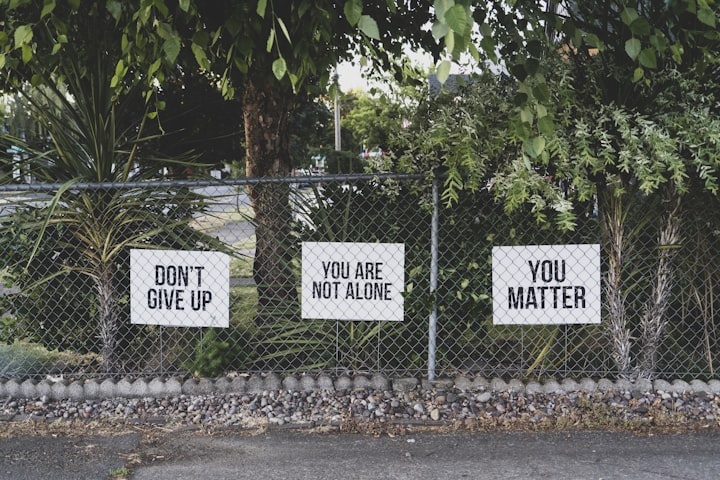The Power of Music
Mindfulness, Love and Relationships

I am certain that I am not alone in saying that music can be exquisitely emotional. Everyone gets enjoyment out of many kinds of music. It is an independent choice for each individual person.
Music can be a way to our hearts.
I know very well just one certain song I heard far back in the October of 1998 that had an impact upon my life that changed me forever.
'To The Moon And Back,' (Savage Garden, published 4th November 1996, by Columbia Records.) has very special meaning and emotion to myself and for my wife.
Courtesy of VEVO/YOUTUBE:
An emotionally powered song, with lyrics for the heart of lovers everywhere.

No. The image is not about any of the lyrics to the song. But the feelings I was having toward this one very pale-faced, short figure, with black long hair (enough to cover her entire face) young woman, So, to start with I could not see her face - but simply the way that she walked. This young person walked with a slow, uncertain, quiet movement wherever she was. She appeared fearful, sad, and not wanting anyone to see her.
I need not further this area as my lovely wife has covered this within another article well worth reading at the link below:
https://vocal.media/humans/i-found-love-in-a-psychiatric-hospital
Particular songs with emotional, true to life lyrics, can (and do) have a very powerful effect on your mind - it is able to take you back through the emotive power of your brain and bring forward a special moment within your life, which may have been many years ago - but when you hear that one particular song it all comes flooding back; very much as if that 'moment' was just yesterday.
HOW and WHY?
Have you heard this term before, it is known as Rhythmic Entrainment ' The term basically means that it is a process by which the emotion from a particular song can be evoked by a piece of music, because a powerful, external rhythm to the music influences some internal bodily rhythm of the listener (the best example would be a persons heart rate), in such a manner that the latter rhythm adjusts toward and eventually 'locks in' to a common periodicity throughout the lyrics and music. Music within such a way can affect the Parasympathetic Nervous System (PND) within our bodies, which can cause us to 'tingle' across our skin, or, actually invoke crying. The use of music is commonplace within the human habitat for being able to take part & activate mindful practices. Music can invoke several emotions within ourselves such as:
1 - Calmness & Relaxing
2 - Joyfulness & Tearfulness
3 - Dreaminess
4 - Amusement
5 - Energizement
6 - Anxiety
7 - Sadness
8 - Fear
9 - Annoyance
10 - Indignance or Defiance
11 -Scariness
12 - Beauty
13 - Erotic & Desire
That is a considerable amount of emotions from simply a song! Now can you see why music is said to be so 'evocative' within its own nature? Music presents itself with many different genres. There are many numerous and wide spectrums of music genres, from pop, romantic, indie, rock, classical, guitar, soul, dance, and many, many more - based upon the religion and cultures from around the world today.
Music is used widely nowadays within the National Health Service (NHS), private care services, child day centres, dentist (waiting areas and treatment rooms), schools, and shopping centres - to say the very least.
The grounding idea is for 'music therapy' benefits.
Music assists us with 'tapping' into our emotional state of well-being, our physical health, our community social functioning, our level of abilities in communication skills with those around us, and within our cognitive skills through varied musical responses.
It is common practice to use music as a therapeutic benefit within elderly care settings - most particularly within 'Care of the Dying' & Dementia settings.
As I discussed earlier, music can evoke in us up to 13 different emotional responses.
-- Dentists use them in their patient waiting rooms & treatment areas, to help patients relax and reduce their tenseness at being there (which is used also much for the same purposes within Hospitals.)
-- Child Day Centres & Schools incorporate music into lesson plans for attending children, to teach them about music. What it is, why it is useful & beneficial, and for fun
-- Care of the Dying & Dementia care settings, where music provides emotional warmth, cathartic engagement (basically psychological relief through the open expression of strong emotions), and supports memory recall ability.
-- Shopping centres & Supermarkets are very familiar with the subliminal use of music. They use it to enhance the mood of the shoppers, putting them in joyful & relaxed moods to purchase from them, in their attempts to make them think about wanting the item and distract away from the purchasing cost.
13 Where Are We At Today?

Well, as the image suggests to you, we have now been happily married to one another since 1999, writing this now it is 2021. We are both very happy together, and,
MUSIC KEEPS US STRONG - particularly 'To The Moon & Back,' because that is where we have both been together in our lives - to the moon and back!
If you have read this article, please heart it. If you wish to provide a tip please do so, but remember they are lovely and heartfelt, but not obligatory. More of my articles can be found at:
https://vocal.media/authors/jonathan-townend
If you wish to message me then please do so by emailing me at:
About the Creator
Jonathan Townend
I love writing articles & fictional stories. They give me scope to express myself and free my mind. After working as a mental health nurse for 30 years, writing allows an effective emotional release, one which I hope you will join me on.






Comments
There are no comments for this story
Be the first to respond and start the conversation.